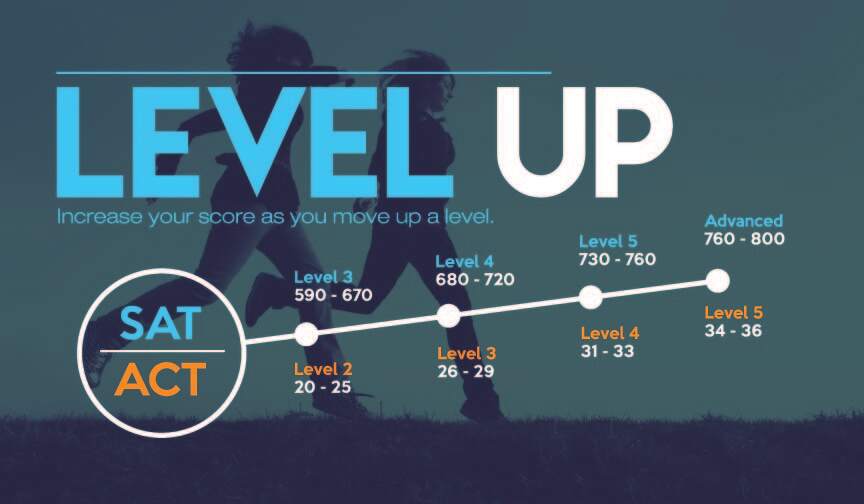95% Acceptance to top 5 choices
MeGA | BS/MD Admissions
Earn both a Bachelor of Science (BS) and a Doctor of Medicine (MD) degree
BS/MD Programs
Your Personal Team

Medical School Admissions Consultants

STEM Research

Academic Competition

Chief counselor

Editor-In-Chief (EIC)

Professional writers

Personal counselors

Professional Test Prep Tutors

4.0 GPA tutoring

Explore Our Comprehensive BS/MD College List
Our Comprehensive BS/MD College List offers an in-depth look at top combined medical programs, featuring key details like admission requirements, program structure, and application deadlines.
Brown University/Brown University Warren Alpert School of Medicine:
- Program: Program in Liberal Medical Education (PLME)
- Duration: 8 years
- Location: Providence, RI
- Description: A unique BS/MD program with a liberal arts focus, offering guaranteed admission to medical school upon completion. Highly competitive with a 3% acceptance rate, it's the only Ivy League program of its kind.
University of Rochester/University of Rochester School of Medicine:
- Program: Rochester Early Medical Scholars (REMS)
- Duration: 8 years
- Location: Rochester, NY
- Description: Accepts only 10 students annually, providing a seamless transition from undergraduate to medical studies through the Double Helix Curriculum.
Case Western Reserve University/Case Western Reserve University School of Medicine:
- Program: Pre-Professional Scholars Programs
- Duration: 8 years
- Location: Cleveland, OH
- Description: Offers conditionally guaranteed admission to medical school, admitting 15-20 students yearly. Completion in 8 years, regardless of undergraduate degree duration.
Stony Brook University/Stony Brook University’s School of Medicine:
- Program: Scholars for Medicine Program
- Duration: 8 years
- Location: Stony Brook, NY
- Description: Conditional admission to medical school, with undergraduates needing to meet MCAT score requirements by junior year spring.
University of Connecticut/University of Connecticut School of Medicine:
- Program: Special Program in Medicine
- Duration: 8 years
- Location: Storrs, CT
- Description: Offers a choice of BA or BS majors with an emphasis on medicine. Requires enrollment in UConn’s Honor Program for undergraduate studies.
Rensselaer Polytechnic Institute/Albany Medical College:
- Program: Accelerated Physician-Scientist Program
- Duration: 7 years
- Location: Troy, NY
- Description: Combines premedical and liberal arts education with significant research opportunities, leading to graduation with special honors.
Penn State University/Sidney Kimmel Medical College at Thomas Jefferson University:
- Program: Accelerated Premedical-Medical Program
- Duration: 7 years
- Location: Northeastern Philadelphia, PA
- Description: Provides flexibility with opportunities for research, minor exploration, and study abroad during the 7-year program.
George Washington University/George Washington University School of Medicine and Health Sciences:
- Program: BA/MD program
- Duration: 7 years
- Location: Washington, D.C.
- Description: Requires excellence in academics, leadership, and community service, with a focus on healthcare experience. Competitive SAT/ACT scores are necessary.
University of Pittsburgh/University of Pittsburgh School of Medicine:
- Program: Guaranteed Admission Program (GAP)
- Duration: 8 years
- Location: Pittsburgh, PA
- Description: Requires high GPA and relevant experiences like research and community service. MCAT is required prior to matriculating to the School of Medicine.
Syracuse University/SUNY Upstate Medical University:
- Program: Upstate Accelerated Scholars (UAS) Program
- Duration: 7-8 years
- Location: Syracuse, NY
- Description: Offers a 7-8-year track for BS/MD, with biology BA/MD students completing in 7 years. No MCAT required after acceptance.
Stevens Institute of Technology/New Jersey Medical School at Rutgers University
- The Accelerated Pre-Medicine Program offered through the Stevens Institute of Technology is a 7-year program based in Hoboken, NJ. Students will need to meet minimum SAT/ACT requirements and submit an exceptional application.
Rutgers University-Newark College of Arts and Sciences/New Jersey Medical School at Rutgers University
- This Rutgers program takes 7 years to complete. Applicants must discuss their interests related to medicine and volunteering in their application.
University of Illinois at Chicago/University of Illinois at Chicago College of Medicine
- The UIC Guaranteed Professional Program Admissions (GPPA) program admits around 57 students each year. Students may be assigned to one of three campuses in Chicago, Peoria, or Rockford during the 8-year program.
New Jersey Institute of Technology/New Jersey Medical School at Rutgers University
- This 7-year program accepts around 28 students each year and does not dictate majors. Students will be a part of NJIT’s Albert Dorman Honors College and are encouraged to get involved in research early in their undergraduate career.
Temple University/Temple University Katz School of Medicine Medicine
- The Pre-Med Health Scholar Program at Temple University can be completed in 7 or 8 years. The 7-year track is only open to Biology or Chemistry majors.
Baylor University/Baylor College of Medicine
- The Baylor2Baylor program is an 8-year program where students start in Waco and continue at the College of Medicine in Houston. Only six students are accepted each year, and the program emphasizes working with underserved communities.
Drexel University/Drexel University College of Medicine
- Drexel’s BA/BS+MD Early Assurance Program is an 8-year program with majors limited to Biological Sciences, Chemistry, and Biomedical Engineering. Students must meet coursework, community service, and GPA/MCAT requirements.
University of Colorado/University of Colorado School of Medicine
- Located in Denver, CO, this 8-year program accepts 10 applicants each year and allows majors from the College of Liberal Arts and Sciences. Students participate in full-time summer programs.
Howard University/Howard University College of Medicine
- Howard's BS/MD program is a true accelerated program, completed in just 6 years split into Phase One (2 years) and Phase Two (4 years).
University of Alabama/University of Alabama School of Medicine
- This 8-year program offers flexibility in choosing any major in undergrad and provides special seminars, shadowing and research opportunities, and Ethics and Bioethics Bowl Teams.
University of Cincinnati/University of Cincinnati College of Medicine
- The Connections Dual Admissions Program offers a pathway to medical school with opportunities to enhance the undergraduate experience through programs like the Undergraduate Program in Medical Sciences and the University Honors Program.
Virginia Commonwealth University/Virginia Commonwealth University School of Medicine
- Virginia Commonwealth’s Honors College Guaranteed Admission Program for Medicine is an 8-year program combining patient care with academic study. Applicants must apply to the Honors College for consideration.
Montclair State University/New Jersey Medical School at Rutgers University
- Montclair's 8-year program allows undergraduates to major in Biology, Chemistry, Biochemistry, or Molecular Biology, with enrichment activities available throughout the year.
Mercer University/Mercer University School of Medicine
- Mercer’s Special Consideration Program accepts up to 60 students annually, with Early Action I application required for consideration. All studies are completed on Mercer’s campus in Macon, GA.
Hofstra University/Hofstra Northwell School of Medicine
- Students in Hofstra’s 8-year program are encouraged to pursue additional educational opportunities throughout their first 4 years, including minors, study abroad, or joining the honors college. Applicants must take the CASPer™/Altus exam.
Wayne State University/Wayne State University School of Medicine
- Wayne State's program admits only 10 students annually, focusing on health disparities education and community leadership development through Learning Communities and clinical experiences.
Florida Atlantic University/Florida Atlantic University College of Medicine
- FAU offers two 7-8 year BS/MD programs, with different undergraduate experiences: the Med Direct program at the Boca Raton campus and the Wilkes Medical Scholars program at the Jupiter Campus.
Texas Tech University/Texas Tech University Health Sciences Center School of Medicine
- Texas Tech’s Undergraduate to Medical School Initiative allows early matriculation without MCAT requirements, offering unique opportunities for students aspiring to medical careers.
University of New Mexico/University of New Mexico School of Medicine
- UNM's Combined BA/MD Degree Program admits 28 students yearly, focusing on health, medicine, and human values education with immersive practicum experiences.
University of Missouri – Kansas City/University of Missouri – Kansas City School of Medicine
- UMKC’s 6-year program offers flexibility in majors and encourages participation in research and service opportunities.
Union College/Albany Medical College School of Medicine
- Union’s Leadership in Medicine Program offers a unique opportunity to earn three degrees in 8 years: BS, MD, and MBA in Healthcare Management.
College of New Jersey/New Jersey Medical School at Rutgers University
- Rutgers BS/MD program at TCNJ offers major flexibility in approved subjects and allows exploration of minors, double majors, and study abroad opportunities.
Choose your Comprehensive BS/MD program
Select a program that reflects your strengths, supports your career goals, and enhances your chances of admission.

Platinum
Applications
Application essays
Resume Writing
Interview Coaching
Scholarship Support
Research Paper Writing
Shadowing support
Academic Competition
Academic Subject Tutoring
SAT | PSAT | ACT | AP Prep
Summer Program Admissions
Study Ahead During Summer
Professional Certificate Support

Gold
Applications
Application essays
Resume Writing
Interview Coaching
Scholarship Support
Research Paper Writing
Shadowing support
Summer Program Admissions
Professional Certificate Support

Essential
Applications
Application essays
Resume Writing
Interview Coaching
Scholarship Support
Professional Certificate Support
Have us customize the right program for you
For those seeking a more customized experience, we offer the option to create a fully tailored admissions plan. By scheduling a consultation with a counselor near you, you can receive personalized guidance on selecting the best-fit program.
Choose your BS/MD colleges
Let us help you choose the right BD/MD colleges for you, as these program structures vary in duration, requirements, and offerings.

Admission requirements for BS/MD programs vary depending on the institution, but here are some common criteria and considerations:
Academic Excellence: Most programs require strong academic performance in high school, including a high GPA and rigorous coursework in science and math.
Standardized Tests: Many programs require standardized test scores, such as the SAT or ACT, and some may also require SAT Subject Tests or the MCAT for certain stages of the program.
Letters of Recommendation: Applicants typically need to submit letters of recommendation from teachers, guidance counselors, or other individuals who can speak to their academic abilities, character, and suitability for the program.
Extracurricular Activities: Admissions committees often look for well-rounded applicants who have participated in extracurricular activities, leadership roles, community service, and healthcare-related experiences.
Personal Statement or Essay: Applicants may be required to write a personal statement or essay explaining their motivation for pursuing a career in medicine, their interest in the program, and how their experiences have prepared them for medical school.
Interview: Some programs require applicants to participate in an interview as part of the admissions process. This interview may assess communication skills, professionalism, and alignment with the program's mission and values.
Specific Program Requirements: Each BS/MD program may have specific requirements or preferences regarding coursework, academic background, residency status, and other factors. Applicants should carefully review the admissions criteria for each program they are interested in.
Early Assurance Programs: Some programs offer early assurance pathways, allowing students to apply and gain provisional acceptance to medical school during their undergraduate studies. These programs may have slightly different requirements and timelines compared to traditional BS/MD programs.
Residency Requirements: Some programs give preference to in-state residents or have agreements with specific high schools or colleges. Applicants should review residency requirements and preferences for each program.
Interview Prep and Advising: Applicants may benefit from interview preparation, advising, and guidance from pre-health advisors or mentors to enhance their application and interview performance.
- Albany (Union College, Sienna College)
- Baylor College of Medicine (Baylor University, University of Houston/DeBakey High School, Xavier University, St. Mary’s University)
- Brown Alpert Medical School PLME (Brown University)
- Case Western Reserve University School of Medicine (Case Western)
- Donald and Barbara Zucker School of Medicine at Hofstra/Northwell (Hofstra)
- Drexel (Drexel)
- Florida Atlantic University (Florida Atlantic University, Florida A & M University)
- George Washington University (St. Bonaventure University)
- Indiana University School of Medicine (University of Evansville – Indiana residents only)
- Lewis Katz School of Medicine at Temple University (Washington & Jefferson College)
- Marshall University (Marshall University – West VA residents only)
- Medical College of Georgia at Augusta (Augusta University – Georgia residents only)
- Mercer School of Medicine (Mercer University – Georgia residents only)
- Ponce Health Sciences University School of Medicine (Pontifical Catholic University of Puerto Rico, Universidad Interamericana de Puerto Rico, Universidad Sagrado Corazon De Puerto Rico, Universidad Central de Bayamon, New Jersey Institute of Technology)
- Saint Louis University School of Medicine (Saint Louis University)
- State University of New York Upstate Medical University Alan and Marlene Norton College of Medicine (Adelphi University, Albany College of Pharmacy and Health Sciences, Hampton University, Purchase College, Rochester Institute of Technology, SUNY Polytechnic Institute, SUNY, College of Environmental Science and Forestry, Spelman College, Syracuse University, University at Albany, Yeshiva University)
- SUNY Downstate Health Sciences University College of Medicine (Brooklyn College)
- Renaissance School of Medicine at Stony Brook University (Stony Brook University)
- Texas Tech (Texas Tech – Texas residents only)
- University of Alabama (University of Alabama)
- University of Cincinnati (University of Cincinnati)
- University of Colorado (University of Colorado – Colorado residents only)
- University of Connecticut (University of Connecticut)
- University of Illinois at Chicago (University of Illinois at Chicago – Illinois residents only)
- University of Minnesota (University of Minnesota)
- University of New Mexico (University of New Mexico – New Mexico Residents only)
- University of Pittsburgh (University of Pittsburgh)
- University of Rochester – Rochester Early Medical Scholars – REMS (University of Rochester)
- University of South Alabama (University of South Alabama)
- Virginia Commonwealth University (Virginia Commonwealth)
- Wayne State (Wayne State)
- Western Michigan University Homer Stryker M.D. School of Medicine (Albion College)
- Albany (Rensselaer Polytechnic Institute)
- Florida Atlantic University (Florida Atlantic University, Florida A & M University)
- George Washington University School of Medicine (George Washington University)
- Rutgers New Jersey Medical School (Caldwell University; Drew University; New Jersey Institute of Technology (NJIT); Rutgers University-Newark; Stevens Institute of Technology; St. Peters University; The College of New Jersey (TCNJ)
- Sidney Kimmel College of Medicine at Thomas Jefferson University (Penn State University)
- University of Arizona Accelerated Pathway to Medical Education (APME)
- ON HOLD 2023 – 2024: University of Nevada (University of Nevada, Reno)
- University of Central Florida College of Medicine (Burnett Honors College Medical Scholars Program)
- University of Florida College of Medicine (University of Florida)
- Morsani College of Medicine (Judy Genshaft Honors College at USF)
- Howard University College of Medicine (Howard University)
- University of Missouri in Kansas City (University of Missouri in Kansas City)
How do I STAND OUT?
Some tips

Well-written essays and successful interviews can help applicants stand out from the competition, demonstrate their suitability for the opportunity, and leave a lasting impression on the evaluators.
The following crucial admissions categories can help you strengthen your application and increase your chances of admission to competitive BS/MD programs.
Academics:
- Academic excellence is crucial for BS/MD admissions. This includes maintaining a high GPA throughout high school, especially in challenging courses like AP or IB classes.
- Strong performance on standardized tests like the SAT or ACT is typically required. Some programs may also require SAT Subject Tests or the MCAT at different stages.
- Admissions committees look for consistency in academic performance and a demonstrated ability to handle rigorous coursework.
Research Experience in BS/MD Applications: Demonstrating Meaningful Engagement
- Participation in research projects, internships, or science fairs demonstrates a genuine interest in scientific inquiry and critical thinking, which are essential skills for medical school.
- Applicants should highlight any research experiences in their application, including projects they've worked on, publications, presentations, or awards received.
Choosing the Right Volunteer Opportunities
- Volunteering and community service show a commitment to helping others and serving the community, traits valued in aspiring physicians.
- In addition to traditional volunteer work, involvement in advocacy or social justice initiatives can demonstrate a passion for addressing systemic issues related to healthcare access, equity, or public health.
Clinical Experience: Exploring Healthcare Settings
- Clinical exposure allows applicants to gain firsthand experience in healthcare settings, interact with patients, and understand the realities of medical practice.
- Shadowing physicians, volunteering in hospitals or clinics, or participating in medical internships or programs can provide valuable insights into the medical field and strengthen an applicant's candidacy.
Extracurricular Involvement in BS/MD Applications: Broadening Your Profile
- Beyond academics and healthcare-related experiences, admissions committees value well-rounded applicants who have diverse interests and talents.
- Participation in extracurricular activities such as sports, music, arts, leadership roles, or clubs demonstrates qualities like teamwork, leadership, and time management.
- Applicants should showcase their passions and achievements outside of academics and healthcare to present a holistic picture of themselves to admissions committees.
During the interview, the applicants must draw from their personal experiences to articulate thoughtful responses to interview questions specific to BS/MD or early admissions programs. We have you put together concrete examples, reflections, and future aspirations so that you can effectively convey your readiness, passion, and values aligned with the medical profession.
Please note that the following examples are only guidelines on how to approach each question and do not represent finished responses.
Why are you specifically interested in a combined BS/MD program rather than pursuing traditional undergraduate and medical school paths separately? Example: "I'm really drawn to the combined BS/MD program because it feels like the perfect fit for my journey toward becoming a doctor. Back in high school, I spent a lot of time volunteering at our local hospital, and those experiences showed me just how much I love being in a medical environment. Going through a BS/MD program means I can dive straight into my passion for medicine from day one, which is super exciting to me!"
How do you envision integrating your undergraduate studies with your medical education in a combined program? Example: "I've thought a lot about this! My plan is to dive deep into both the science side of things with majors in Biology and Medical Humanities. I really believe that understanding the human aspect of medicine is just as crucial as knowing the science behind it. By mixing in courses on ethics, sociology, and healthcare policy alongside my medical studies, I hope to become a doctor who sees the bigger picture and can connect with patients on a deeper level."
Can you discuss a challenging ethical dilemma you encountered and how you resolved it? How do you think your approach to ethical issues aligns with the values of the medical profession? Example: "One time during my internship at a clinic, I faced a tough situation where a patient's family wanted to keep some medical details from the patient due to cultural beliefs. It was a real test of my values! After talking it through with my supervisor and doing some research, I ended up having a heartfelt conversation with the family. We found a middle ground that respected their beliefs while also making sure the patient had all the info they needed. It showed me how important it is to balance respect for different perspectives with the principles of patient-centered care."
In what ways have you demonstrated leadership and teamwork skills, and how do you anticipate applying these skills in a medical context? Example: "Being the captain of my school's soccer team taught me so much about leading and working as a team. From rallying everyone before a big game to helping out teammates who were struggling, it was all about communication and support. I know those skills are going to come in handy in the medical field, whether I'm collaborating with other healthcare professionals or leading initiatives to improve community health. It's all about making sure everyone feels heard and valued!"
Describe a healthcare-related experience or exposure that significantly influenced your decision to pursue a career in medicine. Example: "One experience that really sticks with me is a medical mission trip I went on to Guatemala. Seeing the impact of healthcare in underserved communities was life-changing. There was this one moment where I got to help out with basic healthcare for a young child who wouldn't have had access otherwise. It hit me hard how much of a difference I could make as a doctor, especially for those who need it most. That trip solidified my passion for medicine and my commitment to making healthcare more accessible for everyone."
How do you plan to balance the demands of rigorous academic coursework with extracurricular activities and personal commitments in a combined program? Example: "In high school, I balanced a heavy course load with varsity sports, part-time work, and volunteering. One example of this was during my senior year when I was taking AP classes, captaining the debate team, and working part-time at a local animal shelter. To manage my time effectively, I created detailed schedules and prioritized tasks based on deadlines and importance. I plan to apply the same organizational skills and time management strategies to balance the demands of rigorous academic coursework in a combined program with extracurricular activities and personal commitments."
Can you provide examples of your resilience and adaptability in the face of academic or personal challenges? How do you plan to navigate the intensity of medical training? Example: "During my sophomore year of college, I faced a significant personal challenge when my father fell ill and required extensive medical care. Balancing caregiving responsibilities with coursework was incredibly challenging, but I learned to adapt quickly and prioritize effectively. Despite the adversity, I maintained a strong academic performance and continued to pursue my passion for medicine through volunteering at a local clinic. This experience taught me resilience and adaptability, skills that I believe will be invaluable during the intensity of medical training."
What unique perspectives or experiences do you bring to the medical field, and how do you believe they will contribute to the diversity of perspectives within your future medical school cohort? Example: "Growing up in a multicultural household and being fluent in multiple languages has given me a unique perspective on healthcare disparities and cultural competency. For instance, witnessing my grandparents navigate the healthcare system with limited English proficiency highlighted the importance of accessible and culturally sensitive care. I believe my experiences will contribute to the diversity of perspectives within my future medical school cohort by fostering a deeper understanding of the diverse needs of patients from different backgrounds."
Discuss a healthcare issue or topic that you are passionate about and explain why it is important for future physicians to address. Example: "I am passionate about mental health advocacy, particularly destigmatizing mental illness within marginalized communities. During my undergraduate studies, I conducted research on the impact of cultural beliefs on mental health help-seeking behaviors. It became evident that cultural stigma often prevents individuals from seeking timely and appropriate mental health care. As future physicians, it is crucial for us to address mental health stigma and advocate for culturally competent mental health services to ensure equitable access to care for all individuals."
How do you plan to maintain your motivation and passion for medicine throughout the duration of the program, considering its demanding nature and length? Example: "To maintain my motivation and passion for medicine, I plan to cultivate a supportive network of peers, mentors, and faculty who share my dedication to serving others. Additionally, I will seek opportunities for self-care, such as regular exercise, mindfulness practices, and engaging in hobbies that bring me joy. Reflecting on the impact of my work and the meaningful connections I make with patients will serve as constant reminders of why I chose this path. Ultimately, my unwavering commitment to making a positive difference in people's lives will fuel my motivation throughout the demanding and lengthy journey of medical training."
Preparing for BS/MD interviews is a crucial step in the admissions process, requiring thorough preparation and thoughtful reflection. Here's a more detailed explanation of each step.
If you take the time to follow these steps and really dive into your preparation, you'll be able to tackle BS/MD interviews with confidence. This will not only help you present yourself in the best light but also improve your chances of leaving a positive impression on the admissions committee.
Research the Program: Dive deep into the details of the BS/MD program you're applying to. Get to know its structure, curriculum, and any special offerings like early clinical exposure or research opportunities. Understanding these aspects will help you tailor your responses to match the program's goals.
Review Your Application Materials: Take a moment to revisit your application materials. Reflect on the experiences, achievements, and personal qualities you highlighted in your essays and letters of recommendation. These are key points that you may need to elaborate on during the interview.
Understand Current Healthcare Issues: Stay up-to-date on what's happening in the world of healthcare. Show that you're in tune with the latest topics, trends, and challenges facing the field. It demonstrates your dedication and awareness of the broader context in which medicine operates.
Practice Common Interview Questions: Practice makes perfect! Spend some time rehearsing responses to common interview questions. Think about your academic journey, extracurricular activities, and long-term aspirations. Use real-life examples to illustrate your points and make your answers more compelling.
Reflect on Your Personal Journey: Take a moment to reflect on your journey to medicine. Consider the pivotal moments, obstacles you've overcome, and mentors who have inspired you along the way. Sharing these reflections adds depth and authenticity to your interview responses.
Highlight Your Strengths and Skills: Identify your strengths and skills that are relevant to a career in medicine. Whether it's your empathy, communication abilities, or problem-solving skills, make sure to showcase them during the interview. Use concrete examples to demonstrate how you've honed these qualities over time.
Mock Interviews: Practice, practice, practice! Enlist the help of friends, family, or mentors to conduct mock interviews. This will help you get comfortable with the format, refine your answers, and boost your confidence before the real thing.
Demonstrate Professionalism: Approach the interview with professionalism and respect. Dress appropriately, arrive punctually, and greet your interviewers courteously. Maintain good posture, eye contact, and active listening throughout the conversation.
Ask Questions: Don't forget to ask questions of your own! Show your interest in the program by asking insightful questions about its offerings, faculty, and student life. It's a chance to learn more and demonstrate your enthusiasm for the opportunity.
Stay Calm and Confident: Finally, remember to stay calm and confident on interview day. Take deep breaths, remind yourself of your preparation, and approach the interview with a positive mindset. You've got this!
Your Scholarship Opportunities
Let us help you secure scholarships by finding opportunities suited to your profile and guiding you through every step of the application process.

The Key Academic Scholarships Every College Student Should Know
Merit-Based Scholarships
Awarded based on academic achievement, such as high GPA, standardized test scores, or class rank.Need-Based Scholarships
Given to students who demonstrate financial need, often determined by the FAFSA or CSS Profile.Athletic Scholarships
Granted to students who excel in sports and plan to compete at the collegiate level.Minority Scholarships
Designed for students from underrepresented groups, such as racial minorities, women in STEM, or first-generation college students.Subject-Specific Scholarships
Awarded to students pursuing a specific field of study, such as engineering, science, or the arts.Local/Regional Scholarships
Offered by local organizations, businesses, or foundations to students from a particular geographic area.Leadership Scholarships
Given to students who have demonstrated strong leadership skills through extracurricular activities, community service, or student government.Legacy Scholarships
Available to students whose family members attended the same college or university.Creative Scholarships
Awarded to students with exceptional talent in areas like writing, art, music, or design.

Prestigious scholarships and fellowships
Named Scholarships: Scholarships named after individuals or organizations, often honoring their legacy or mission (e.g., Barry M. Goldwater Scholarship, Coca-Cola Scholars Program Scholarship).
Prestigious National/International Scholarships: Highly competitive awards that are recognized nationally or internationally for their prestige (e.g., The Fulbright Program, NSF Graduate Research Fellowship Program).
Institutional Scholarships: Scholarships offered by specific colleges or universities to their students (e.g., Augustana University Distinguished Scholar Competition, Colorado Mesa University's Distinguished Scholar Award).
Specialized Scholarships: Scholarships focused on specific fields, groups, or areas of study (e.g., NDSGC American Indian Scholarship, NIH Undergraduate Scholarship Program).
Fellowships: Often aimed at supporting graduate study, research, or specific career paths (e.g., The Woodrow Wilson Dissertation Fellowship in Women’s Studies, Luce Scholars Program).
- Augustana University Distinguished Scholar Competition
- Barry M. Goldwater Scholarship & Excellence in Education Foundation
- Benjamin A. Gilman International Scholarship Program
- Boren Scholarships
- Catawba College Socratic Scholarship
- Coca-Cola Scholars Program Scholarship
- Colorado Mesa University's Distinguished Scholar Award
- Cooke College Scholarship Program
- David Geffen Medical Scholarships
- Davidson Fellows Scholarship
- Ernest F. Hollings Undergraduate Scholarship
- Levine Scholars Program
- Luce Scholars Program
- McConnell Scholarship
- MMUF Dissertation Grants
- MMUF Travel & Research Grants
- National Merit Scholarship Corporation Program
- NDSGC American Indian Scholarship
- NDSGC Lillian Goettler Scholarship
- NDSGC Pearl I. Young Scholarship
- NIH Undergraduate Scholarship Program
- NSF Graduate Research Fellowship Program
- Oregon Music Hall of Fame Scholarship
- Overseas Press Club Foundation Awards
- Ripon College Knop Science Scholars Program
- Shelton National Leadership Scholarship
- The Fulbright Program
- The Woodrow Wilson Dissertation Fellowship in Women’s Studies
- U.S. Stockholm Junior Water Prize
- Winston Churchill Foundation of the USA Scholarship Program

Scholarships by Category: A Complete List
- Academic and Merit Scholarships: Scholarships based on academic achievements and overall merit.
- Acting Scholarships: Scholarships for students pursuing careers in acting and performance.
- Agnostic/Atheist Scholarships: Scholarships for students identifying as agnostic or atheist.
- Anti-bullying Scholarships: Scholarships aimed at promoting anti-bullying efforts and awareness.
- Athletic Scholarships: Scholarships awarded based on athletic performance and potential.
- Aviation Scholarships: Scholarships for students pursuing careers in aviation.
- Bible Scholarships: Scholarships for students studying theology or religious studies, often with a focus on biblical studies.
- Cancer Scholarships: Scholarships for students affected by cancer or pursuing cancer research.
- Celebrity Scholarships: Scholarships associated with or funded by celebrities.
- College Scholarships and Grants for Single Mothers: Financial aid specifically for single mothers attending college.
- Community Service Scholarships: Scholarships awarded for significant involvement in community service.
- Corporate Scholarships: Scholarships funded by corporations or businesses.
- Dance Scholarships: Scholarships for students pursuing dance as a career or field of study.
- Diabetes Scholarships: Scholarships for students affected by diabetes or studying diabetes-related fields.
- Disability Scholarships: Scholarships for students with disabilities.
- Distance Learning Scholarships: Scholarships for students enrolled in online or distance learning programs.
- Dyslexia Scholarships: Scholarships for students with dyslexia.
- Easy Scholarships: Scholarships with minimal application requirements or criteria.
- Employer and Employee Scholarships: Scholarships provided by employers for their employees or their families.
- Essay Scholarships: Scholarships awarded based on essay submissions.
- Ethnicity Scholarships: Scholarships aimed at students from specific ethnic backgrounds.
- Federal Scholarships: Scholarships funded by federal government sources.
- First in Family Scholarships: Scholarships for students who are the first in their family to attend college.
- Full Tuition Scholarships: Scholarships that cover the entire cost of tuition.
- Green Scholarships: Scholarships for students focused on environmental studies or sustainability.
- International Student/Study Abroad Scholarships: Scholarships for international students or those studying abroad.
- Largest Dollar Amount Scholarships: Scholarships offering the highest monetary value.
- Last Dollar Scholarship: Scholarships that cover the remaining balance of tuition after other aid has been applied.
- Legacy Scholarships: Scholarships awarded to students based on family legacy or affiliation.
- Local Scholarships: Scholarships available to students within a specific locality or community.
- Military Scholarships: Scholarships for current or former military personnel and their families.
- Minority Scholarships: Scholarships aimed at students from minority groups.
- No Essay Scholarships: Scholarships that do not require an essay for application.
- Non-Academic College Scholarships: Scholarships that are not based on academic performance but other criteria.
- Online Scholarships: Scholarships that can be applied for or awarded online.
- Prestigious Scholarships: Highly competitive and esteemed scholarships.
- Religious Scholarships: Scholarships for students pursuing religious studies or affiliated with specific religious organizations.
- Renewable Scholarships: Scholarships that can be renewed for multiple years.
- Scholarship Contests & Sweepstakes: Scholarships awarded through competitions or sweepstakes.
- Scholarship Essay Contests: Scholarships awarded based on essay contests.
- Scholarship Poetry Contests: Scholarships awarded based on poetry submissions.
- Scholarships for Adult Students: Scholarships specifically for students who are adults or returning to school later in life.
- Scholarships for Average Students: Scholarships available to students with average academic records.
- Scholarships for Gay or Lesbian Students: Scholarships aimed at LGBTQ+ students.
- Scholarships for Men: Scholarships targeted at male students.
- Scholarships for Moms: Scholarships for mothers seeking to further their education.
- Scholarships for Returning Students: Scholarships for students returning to education after a break.
- Scholarships for Single Fathers: Scholarships specifically for single fathers pursuing higher education.
- Scholarships for Single Parents: Scholarships for single parents, regardless of gender.
- Scholarships for Summer: Scholarships intended for summer study or programs.
- Scholarships for Undocumented Students: Scholarships for students who do not have legal documentation.
- Scholarships for Women: Scholarships aimed at female students.
- September 11th Scholarships: Scholarships for students impacted by the September 11th attacks or related events.
- STEM Scholarships: Scholarships for students pursuing studies in science, technology, engineering, and mathematics.
- Study Abroad Scholarships: Scholarships specifically for students studying abroad.
- Technology Scholarships: Scholarships for students focusing on technology-related fields.
- Transfer Scholarships: Scholarships for students transferring from one college to another.
- University Scholarships: Scholarships offered by universities to their students.
- Unusual Scholarships: Scholarships with unique or unconventional criteria.
- Veteran Scholarships: Scholarships for military veterans and their families.
- Video Contest Scholarships: Scholarships awarded based on video submissions.
- Vocational Scholarships: Scholarships for students pursuing vocational or technical education.
- Women's College Scholarships, Grants & Fellowships: Scholarships, grants, and fellowships specifically for women attending college.
- Writing Scholarships: Scholarships for students pursuing writing or literature.
